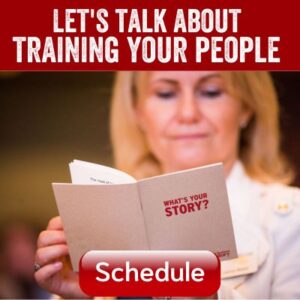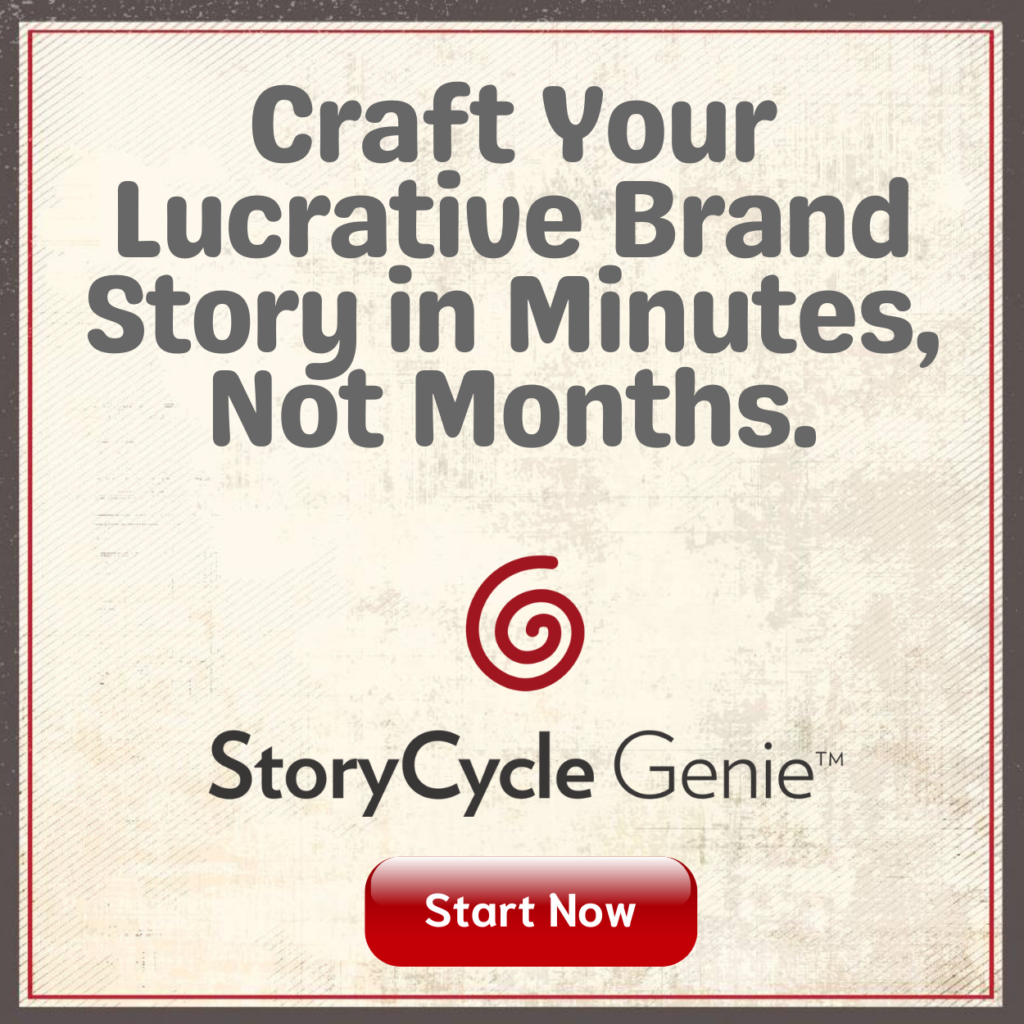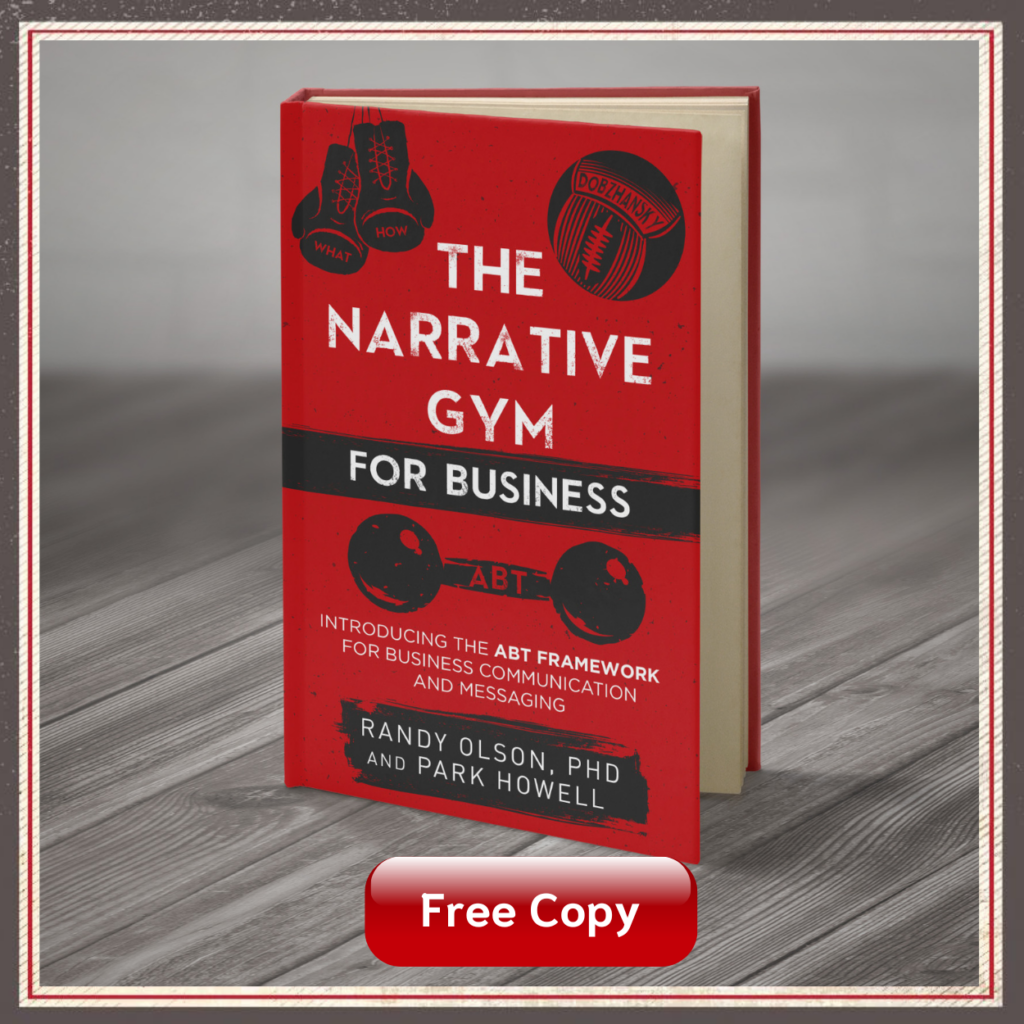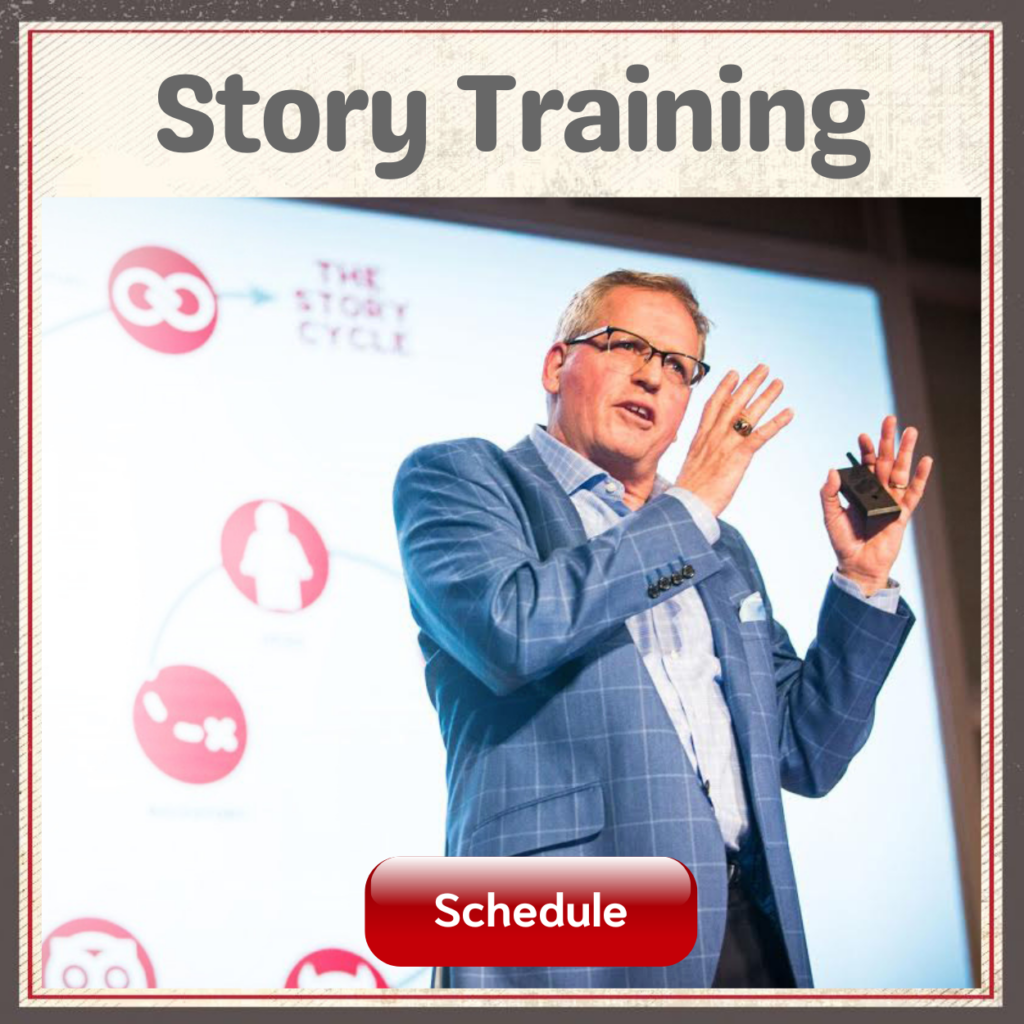Why Your Corporate Brand Videos Fail (And How to Fix Them)
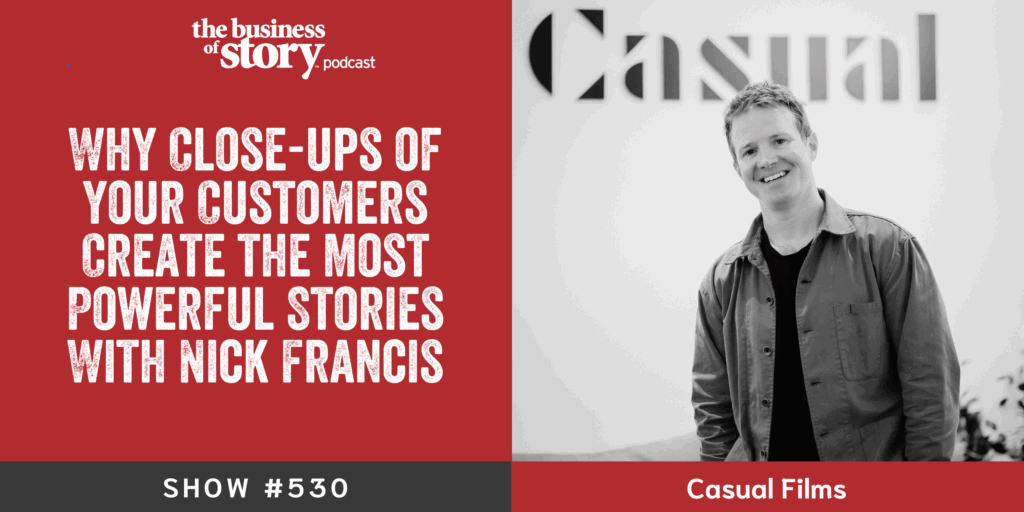
The Goldmine of Stories Hiding in Your Business (And How to Find Them Before Your Competitors Do)
You want to create video content that genuinely connects with your audience and builds authentic relationships that drive real business results.
But you’re frustrated because despite spending thousands on professional video production, your content gets scrolled past faster than yesterday’s news, leaving you wondering if video marketing actually works at all.
Now you can discover the timeless brand storytelling secrets that transform forgettable corporate videos into magnetic content that moves hearts, changes minds, and drives measurable business impact through proven narrative frameworks that put your audience at the center of every story.
Meet Nick Francis: Adventure-Driven Global Storyteller
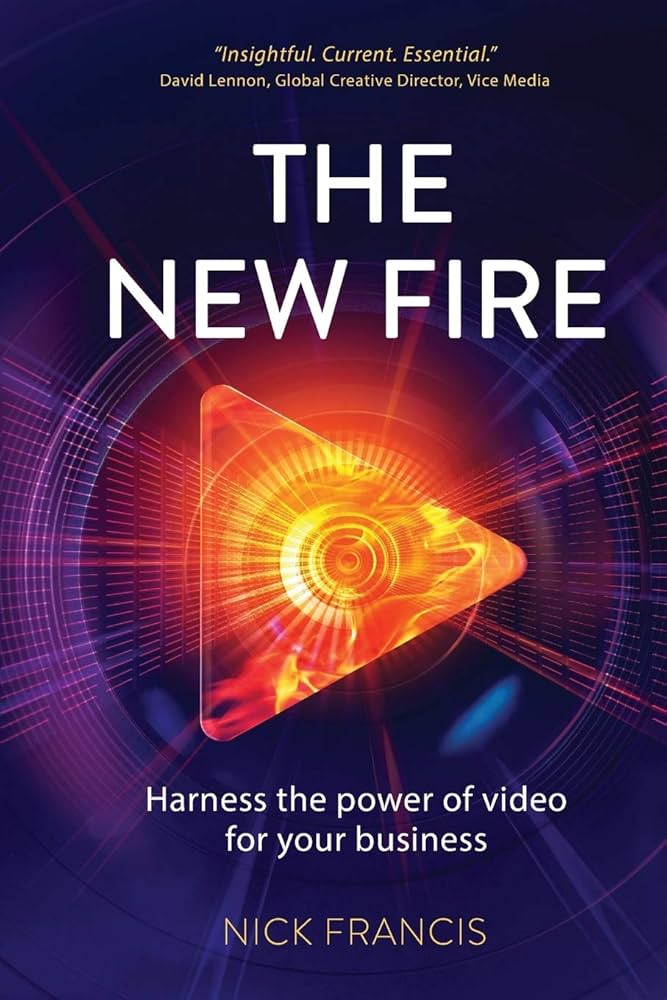
Nick’s the founder and CEO of Casual Films, officially the UK’s number one brand video production company, and author of The New Fire: Harness the Power of Video for Your Business.
But get this: he started wanting to be a war photographer, ended up as a BBC News producer, then drove 9,000 miles from London to Mongolia in a vintage Mini Cooper just for the adventure.
Now he’s running a global operation across nine cities, creating nearly 1,000 brand videos a year for heavyweights like Adobe, Amazon, HSBC, and P&G. His new book? “The New Fire: Harness the Power of Video for Your Business.”
But here’s what shaped everything: Nick lost his father at 10 years old.
His dad was the BBC producer who bought the rights to broadcast the Apollo moon landings worldwide. That early lesson about life’s fragility drives Nick’s “you’ve got one shot, so take it” philosophy.
The Robert Capa Principle That Changes Everything
Nick’s hero was WWII photojournalist Robert Capa, who said: “If your photos aren’t good enough, you’re not close enough.”
This principle transforms how Casual Films approaches every project.
Instead of showing up with just cameras and scripts, they dig deeper. That’s how they discovered a 90-year-old Hilton concierge celebrating his 50th anniversary with the company, a story that emerged only because someone took time to really listen.
“Every business sits on a goldmine of stories,” Nick told me. “You just have to get close enough to find them.”
Three Game-Changing Video Insights
1. It’s All About the Audience (Not You)
Clients constantly reject creative ideas because they don’t personally like them, forgetting they’re not the target audience. Creators and influencers succeed because they ARE their audience.
2. Everyone Wants to Be Apple, No One Wants to Be Steve Jobs
Every company wants Apple’s brand success, but nobody wants Steve Jobs’ singular vision and uncompromising drive. You want the outcome without the obsession.
3. Emotion Drives Action
Great stories reach past busy heads and grab hearts. Audiences viewing emotive brand storytelling are 23% more likely to buy than those seeing traditional advertising.
Why AI Won’t Replace Storytellers (Yet)
Nick’s team tested AI extensively, even hosting an AI Film Fest. His verdict? AI is an incredible teammate for enhancing creativity – think adding $50,000 visual effects to a $10,000 production. But it falls apart in the “messy humanity” where real stories live.
“So much value comes from human storytellers going out into the world, being open-eyed, and saying ‘that’s the story we need to tell,'” he explained.
Video as “The New Fire”
Nick calls video “the new fire” because, like fire enabled humans to gather and share stories that shaped civilization, video creates emotional connections at unprecedented scale.
The numbers prove it:
- Brand storytelling increases brand loyalty by 30%
- Purchase intent rises 27% with emotive storytelling
- Story-driven facts are 22x more memorable
What You Can Do Right Now
- Get Closer: Stop rushing content creation. Really listen to your people and dig deeper.
- Solve Problems First: Ask “what problem are we solving?” before “What video should we make?”
- Think Long-Term: Content marketing’s benefits compound over 18-36 months.
- Use AI as a Teammate: Enhance creativity, don’t shortcut it.
The Bottom Line
A great video isn’t about fancy equipment or big budgets. It’s about getting close enough to find the human story that matters. Every company has incredible stories – you just need the curiosity to discover them.
Remember Capa’s wisdom: if your content isn’t good enough, you’re not close enough.
Ready to discover the goldmine of stories in your business?
What’s In It For You:
- Storytelling is essential for connecting with audiences and driving business success.
- AI is changing the landscape of video production, but human creativity remains irreplaceable.
- Every business has a wealth of stories waiting to be uncovered and told.
- The importance of being close to the story to create compelling narratives.
- Constraints in storytelling can enhance creativity and lead to better outcomes.
- Building brand affinity through storytelling is crucial for long-term success.
- The future of video production lies in combining human creativity with AI capabilities.
Chapters:
- 00:00 Introduction and Global Business Insights
- 01:55 The Influence of Family on Career Choices
- 07:55 The Power of Storytelling in Business
- 17:54 The Role of AI in Video Production
- 24:52 Navigating Change and Embracing Opportunities
- 29:40 The Role of AI in Creativity
- 33:46 Harnessing the Power of Video
- 38:44 The New Fire: Video as a Transformative Tool
- 42:40 AI in Storytelling and Brand Strategy
- 49:36 Enhancing Production Value with AI
Links:
- CasualFilms.com
- Nick Francis on LinkedIn
- Nick on Instagram
- Nick on Facebook
- The Audience Connection Podcast
- What users are saying about the StoryCycle Genie™
Popular Related Episodes You’ll Love:
- #365: Video Tips for Virtual Sales and Marketing Storytelling With Julie Hansen
- #282: How Video Storytelling Builds Billion Dollar Brands with Rick Cesari
- #466: The Secret to Six-Second Video Storytelling with Rain Bennett
Your Storytelling Resources:
Connect with me:
- Instagram: https://www.instagram.com/parkhowell/
- Facebook: https://www.facebook.com/groups/BusinessOfStory
- YouTube: https://www.youtube.com/channel/UC0ssjBuBiQjG9PHRgq4Fu6A
- Twitter: https://twitter.com/ParkHowell
- LinkedIn: https://www.linkedin.com/in/parkhowell/
- Website: https://businessofstory.com/abt/
Transcript of Show:
Got it. Here’s the entire cleaned-up transcript in one continuous block — no time codes, no last names, just Park and Nick bolded with colons:
Park:
Hello Nick, welcome to the show.
Nick:
Hi, Park, great to be here.
Park:
And I know you are somewhat exhausted. You were just detailing with me your world travels of late and you just returned back home to San Francisco. So I appreciate you taking the time and finding the energy to do the show. What were you up to?
Nick:
Well, one of the funny things when you plan to build this global organization is you’re sitting around having some dinner and it sounds like such a great idea. And then the actual reality of having a business, and I know this is a slightly questionable phrase, but on which the sun never sets, is that it’s early morning calls, it’s late night calls, it’s quite a lot of travel. I mean, it’s a wonderful thing. I’m a very lucky man to have what we have and the team’s fantastic.
Yeah, it’s a lot. So I was just over in Europe, largely with family, but also just trying to fit in calls and meetings. So maximizing the time.
Park:
And you are producing videos all around the world for lots of different clients and lots of different languages.
Nick:
Absolutely. Yeah. So we were based out of London originally and then expanded to the US in about 2014 and then opened on the West Coast in 2018, which is when I moved to San Francisco. And it sort of became clear that there was a real opportunity for a real global video supplier. We work with so many global brands and to give them the opportunity to tell local stories globally, but then also to take their global brand and to tell the global story at a local level with a local sensibility. There was kind of a white space there. And so we then expanded into Hong Kong and Singapore. And we’re now in nine cities across the world. And yeah, we work with some of the world’s largest businesses to help them to do that sort of global local thing.
Park:
Yeah. And like everything else, video is being hugely impacted by AI. And we’ll talk about that in a little bit, but I would like to start with talking about your dad and the impact he had in a very short time with you on what you do today.
Nick:
Absolutely. I mean, this is a really interesting case study in a way of the role of parents and the way that they influence their kids’ careers. Because my dad worked for the BBC. He had an incredible career as a program maker. He was in Saigon during the Tet Offensives in 1968. And the BBC then said, listen, Dick—he was called Dick Francis—you’re doing fantastic for us.
We want to set up a division that we’re going to call Special Projects. And we want you to go and cover whatever you think is going on that’s sort of interesting in the world. And he said, it’s got to be the Apollo program. And so long story short, he gets to North America and talks to ABC and realizes that they’re not interested in broadcasting the lunar landings to the rest of the world. They’re only interested in the contiguous US. And so he said, hang on a second. He bought the rights for the rest of the world. And then obviously, the satellite broadcasting industry was fairly nascent. And he managed to do a series of deals that enabled them to broadcast the lunar landings all over the world live. And so anyone who watched the landings live outside of the US did so because of my dad.
He then went on and had a very distinguished career at the BBC and at the British Council. Unfortunately, he worked incredibly hard. Well, fortunately—you know, it’s a double-edged sword. But he died of a massive heart attack in 1992 when I was 10 years old. Back then, executives weren’t fitness fanatics like today’s Ironman CEOs; they drank and smoked too much. Probably quite a wonderful life, but unfortunately a short one.
The impact of losing a parent at that age is unbelievably profound because you’re so secure in the world through your childhood. You have no real perception of time or mortality. What is true now, you believe it will always be true. And I think to learn about the finality of life and the transience of our existence on this planet at such a young age has really shaped the way that I interact with people. And I think it’s also maybe shaped my approach to the business as well in that, you’ve got one shot, so just take it.
When we’re looking at expanding around the world, there’s a hundred reasons why you shouldn’t do it. But then there’s just that one—you’re only here once, risk is good. And so, I don’t know, obviously there are parallels between his career and what I’m now doing. But I think it’s more that there’s just a sort of natural aptitude there rather than any kind of desire to follow in his footsteps. In a sense, I can look at it and see how lucky I am to have that realization at such a young age.
Park:
So do you think you would be in this business without his impact on your young life?
Nick:
It’s an interesting question. He was a journalist originally and a current affairs program maker. I always wanted to be a war photographer when I was a kid. I’d wander around with my SLR camera ready to take photos of any dramas that were happening around me. I wanted to go to war zones because I felt that was the human experience lived at the absolute apogee—the kindest and the most awful, the richness of life in those places.
Now, I may well not be here anymore had I gone down that route. But my girlfriend at the time said, hey, you know, there’s this course in television journalism at City University in London. It’s quite a well-regarded course. So I applied to that because I felt video was the combination of the visual and the written narrative. Then I got a job at the BBC, BBC Breakfast News, and loved it.
So, to go back to your question: we probably have a fairly similar view of the world, my dad and I. His experience has shaped me. But I don’t know whether it’s natural aptitude or a real desire to be like him. In a way, he was so successful, doing the Apollo work at 35. To lose a parent at a young age is to spend your life kind of hankering after their affirmation. And one of the tragedies is that while many people say it’s amazing what you’ve achieved, the one person I want to give me a slap on the back, unfortunately never will.
Park:
Yeah, and you had sent me a note too in preparation for this. You said one of your heroes growing up was Hungarian-American photographer Robert Capa who said, if your photos aren’t good enough, you’re not close enough. So that little line there must have a big impact on what you do today and how you approach every project.
Nick:
Completely. I love that phrase. Robert Capa was a Magnum photographer during World War II. He took some absolute iconic photos of the Spanish Civil War before the war. Then, tragically, he was killed in French Indochina in the 1950s. He stepped on a landmine.
He was just this incredibly larger-than-life character, hanging out with film stars and all sorts, very handsome man. He was the only photographer to land on D-Day. If you’ve seen those blurry photos from Omaha Beach, he went ashore with the first wave. He shot several rolls of film and then got back out on one of the boats and took his photos to London to be developed. A junior developer was so blown away by the imagery that they completely overexposed the negatives. All but three or four photos were lost.
To think that he risked his life to get that close to the story on such a momentous occasion, and then for it all to be gone—and he just shrugged and moved on. The point of that quote, “if your photos aren’t good enough, you’re not close enough,” is relevant to all of us. Great storytelling is about stakes, conflict, characters, but also about the details that really put you in the moment. The closer you can get to the story, the richer that story becomes.
One of the challenges we have as corporate communicators, especially today with the hunger for content, is we risk being far too superficial in the stories we tell. You’re constantly moving on to the next thing. For example, we were doing some work for Hilton. One of our producers talked to a concierge who had just celebrated 50 years at Hilton. He was about 90 years old. His wife had died when he was 65, he got bored sitting at home, so he went back to work. He was such a lovely man, wrote letters to guests he met at the desk. That story was just unbelievably rich, and it came from being close—listening, being open.
That’s where we find the stories that really resonate and move the needle. Without that human messiness, AI falls over. AI is great for data-driven tasks, but humans excel at finding meaning in the mess.
Park:
You know, it’s interesting—you were talking about Hilton and I was doing a story training with them years ago. There was this one young professional, very vivacious. Halfway through I asked why she chose Hilton. She looked surprised—no one had ever asked her that. She said when she was a girl in the Philippines, she saw a billboard promoting tourism. She didn’t understand—“why would people come here? We always go to Japan.” Her mom explained tourism is a big business. That was her spark: she could see the world if she worked in tourism.
That was her moment. That’s what got her to Hilton. And I would have never known that without her story. It underscores your point: if your photos aren’t good enough, you’re not close enough.
Nick:
Exactly. Every business is an amalgam of hundreds, thousands, millions of stories. Founding stories, market stories, employee stories, customer stories. Brands often think they don’t have any. But they do. You just have to listen.
Park:
One of my favorite lines is F8 and be there. It was a photojournalist who, when asked how he got a perfect shot, said, “F8 and be there.” To me, that means get off your ass and pay attention. Storytelling is about being present at the moment of change.
My father, in heavy construction, once said, “You’ve got to do something even if it’s wrong.” You try until you figure it out. That’s storytelling too—perseverance, digging deeper, being open-eyed.
Nick:
Exactly. Perseverance. Digging deeper. Staying open. That’s how you uncover the gold mine of stories inside every company.
Park:
So tell us a little bit about your process.
Nick:
We work with a real breadth of businesses—business services, legal, automotive, tech. We spend as much time as possible with clients to really understand the problem we’re solving. Too often, producers jump straight to “what’s the film we need to make?” But video isn’t just a film. It’s the most powerful communication tool ever invented, short of face-to-face. It conveys emotion to dispersed audiences.
So, we ask: what’s the problem? Who do we need to move? How do they need to be moved? What stories will resonate? That’s the difference between paying $50,000 for a film versus shooting one on your iPhone. If you want a tool that achieves something for your company, you need pros. And the compounding benefit of good creative storytelling is vast.
The problem is people think short-term—quarters, not years. Real brand storytelling ROI comes at 18, 36 months. Yes, we track KPIs along the way. But exponential benefits come long-term.
Park:
And by the way, my apologies. I referred to your company as “Curious.” It’s Casual. Why Casual?
Nick:
We were students, the course was called TV Caj. We shortened it to “Casual Films.” It stuck. People joke about it, sure—“Is that why your guy’s in ripped jeans?”—but clients tell us we make the process easy. Casual means effortless. We’ve done tens of thousands of films. That experience compounds. That’s why.
Park:
Good. I like it. But when I got your pitch, the first thing I thought was: how is AI steamrolling your business?
Nick:
The biggest impact of AI is the erroneous belief you can push a button and get a film. Clients worry—will they look stupid spending $250,000 when someone says they can do it for $2,000 with AI? That uncertainty is pernicious.
We even ran an AI Film Fest. Everyone at Casual had to make an AI film. It was frustrating, inconsistent, but eye-opening. AI is a great teammate—like an editor, illustrator, scriptwriter. But it’s not the team. Creativity thrives on constraints, on production realities, on edits. AI shortcuts that, so you miss the serendipitous discoveries that make films great.
Park:
If your photos aren’t good enough, you’re not close enough. If your AI isn’t good enough, you’re not close enough either. That’s a great connection. So tell me about your new book, The New Fire.
Nick:
The idea is simple: video is the most powerful storytelling tool since fire. Fire gave us nutrition, time, bigger brains, and story around the fire. That’s why story is so powerful—it’s literally wired into us. A story is 22 times more memorable than facts alone. Brand loyalty goes up 30% with storytelling. Purchase intent rises 27%.
The problem is senior leadership stuck in old-school advertising. They see video only as ads. “Open on the logo, housewife feeding dog, end logo.” Outdated. Video today is storytelling.
The book explains how to harness that. Audience, briefs, compelling story, distribution, data. It’s part academic analysis, part practical guide.
Park:
So we’re all carrying the fire in our iPhones.
Nick:
Exactly. Fire can warm you or burn you. Same with video. Same with AI.
Park:
That’s great. When does it come out?
Nick:
It’s out now on Amazon. And if your listeners subscribe to my LinkedIn newsletter, Beyond Casual, and DM me their address, I’ll send them a copy.
Park:
That’s fantastic. We’ll have the link in the show notes. Before we close, we ran your brand through the StoryCycle Genie. What did you think?
Nick:
I thought it was really impressive. It nailed our differentiator: helping global businesses go local and local businesses go global. That’s exactly our focus.
Park:
It wrote your position statement as: “Casual Films is the only global video production company that transforms corporate storytelling through strategic content creation, delivering unified brand messaging across multiple regions with local expertise, innovative content methodologies, and proven business impact for world-leading brands.”
Nick:
Sounds about right.
Park:
And what I love is you can refine it. You don’t need prompt engineering. It’s like sitting across from a branding expert.
Nick:
Exactly. We’ve even built our own GPT to assess scripts and briefs. But something brand-story focused like Genie? That’s exciting.
Park:
Well Nick, thank you so much for being here. I know you’ve been on a whirlwind tour, so I appreciate your time. What’s the best way for people to find you?
Nick:
Absolute pleasure, Park. Best way is LinkedIn—Nick Francis Film. I publish weekly on storytelling and entrepreneurship. Also our podcast, Audience Connection. And of course, casualfilms.com.
Park:
Awesome. Thanks, Nick. I appreciate it.
Nick:
Cool, thanks, Park. Absolute pleasure.
 Listen To More Episodes
Listen To More Episodes



